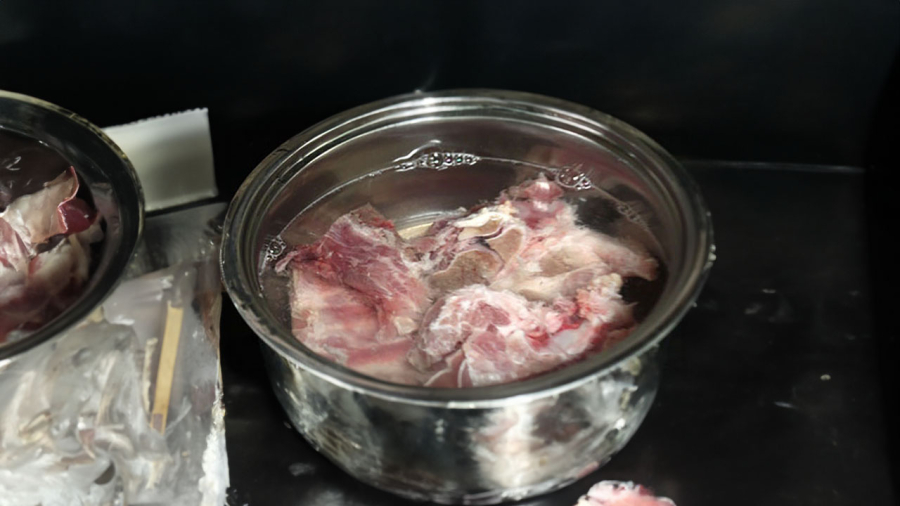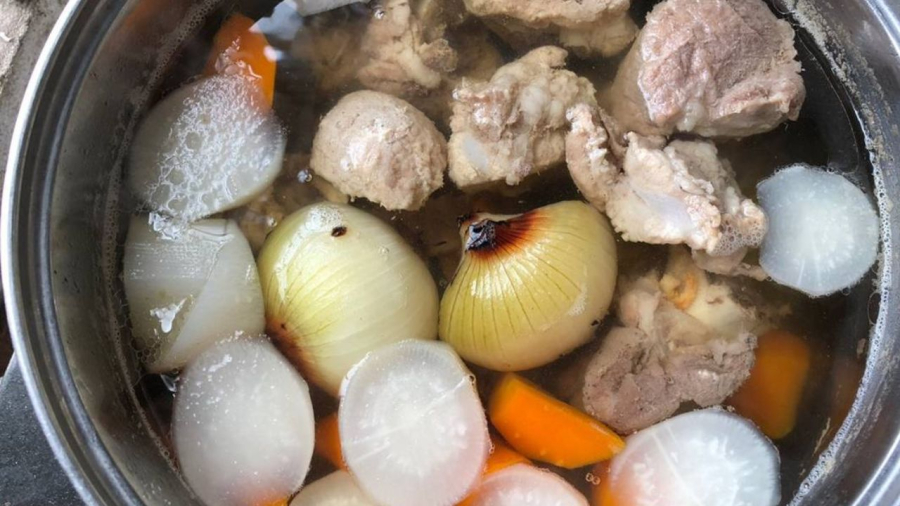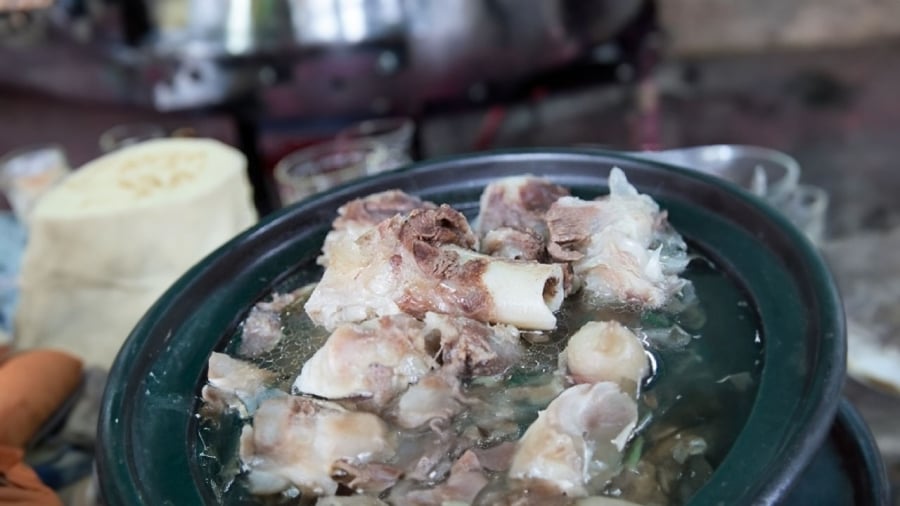When it comes to making bone broth for dishes like pho, bun, and miến or for soups in family meals, many homemakers often do it regularly. But there is one thing, not everyone’s bone broth turns out clear and fragrant, and some even end up with a bad smell despite using fresh and good-quality bones.
Why does bone broth become cloudy and have an unpleasant smell even if you use fresh bones?
The cloudiness in bone broth is mainly caused by not regulating the heat, which makes the pot of bones boil too vigorously and for too long, resulting in cloudy broth.
The strong boiling causes the inorganic calcium in the bones to be released before all the organic matter is released, resulting in the broth having a sour smell of calcium, rather than the bones being rotten or spoiled.

Another reason for a bad smell in the bones is improper initial soaking and rinsing, which leaves a lot of dirt and residue inside the bones, which then gets released into the broth.
How to make delicious bone broth
Soak and rinse the bones in cold water: Soak the bones in cold water for about 2 hours before blanching, if not at least 30 minutes. Then put them in cold water with a little salt and ginger wine and bring it to a boil. Put the bones in cold water to blanch them clean, rather than putting them in boiling water as that will cause the meat and bones to contract, trapping the dirt inside instead of cleaning it out. If you’re blanching a lot of bones, adding white wine is even better. For beef bones or frozen bones, white wine is necessary to make the bones more fragrant. Adding wine and salt to blanch helps remove the blood from the bones and reduces the smell.
Remember to add spring onions while simmering: After blanching the bones, remember to rinse them off completely before putting them in the pot. Put the bones in cold water, bring the pot to a boil, then reduce the heat to a simmer to prevent the bones from boiling vigorously. While simmering the bones, remember to add spring onions, shallots, and ginger to the pot. This will help the broth to be clear, fragrant, and flavorful.
Remember to uncover the pot while simmering: Never cover the pot when simmering the bones. If you use a pressure cooker for bone broth, the broth will only cook quickly but it won’t be as good as simmering it on a regular stove to let the heat slowly cook the broth. Leaving the pot uncovered allows any chemical compounds in the bones to escape with the steam, preventing any unpleasant smells in the broth.
Adjust the heat while simmering the bones: When simmering the bones, make sure to keep the heat low. After the pot of bones boils, lower the heat to a simmer, allowing the nutrients to be released from the bones. Boiling the bones vigorously will cause the release of inorganic calcium, resulting in the broth having a sour and bitter taste. Therefore, you should only simmer the bones gently. Simmering the bones until they become cloudy is also the reason why the bone broth becomes cloudy.

Avoid adding seasonings while simmering the bones
While simmering the bones, you should not add seasonings such as salt, stock powder, or MSG. At high temperatures and long simmering times, these seasonings will degrade and create toxins that are not good for your health and make the broth sour. Only add seasonings when you’re about to cook with the bone broth and it’s almost fully cooked.
How to deal with cloudy bone broth
You can use egg whites to add to the bone broth and stir it evenly, then turn on the heat. This is the simplest way to help the egg whites bind the cloudy elements in the bone broth. Then use a strainer to remove them, and the broth will become clear again.
You can also use a sieve or cloth to strain the bone broth to make it clear again.
To tenderize the bones quickly: Add green papaya or a little beer
The enzymes in green papaya help break down the bones and meat faster. So you can add a few pieces of green papaya, then remove them. You can also add a little beer to the bone broth to make it fragrant, remove any unpleasant smells, and tenderize the meat faster.

Is it good to simmer bones for a long time?
The time required to simmer bones depends on the type of bones. Chicken bones simmer faster than pork bones. Pork bones simmer faster than beef bones. Simmering bones for too long is not good because it creates a lot of nitrites in the broth, which increases the risk of cancer.
To make the broth delicious, you should bring it to a boil and then simmer it gently to allow the nutrients to be released from the bones, resulting in a clear, fragrant, and sweet broth due to the higher organic matter content.
When eating, it’s best to eat the meat along with the bones instead of just drinking the broth.



































